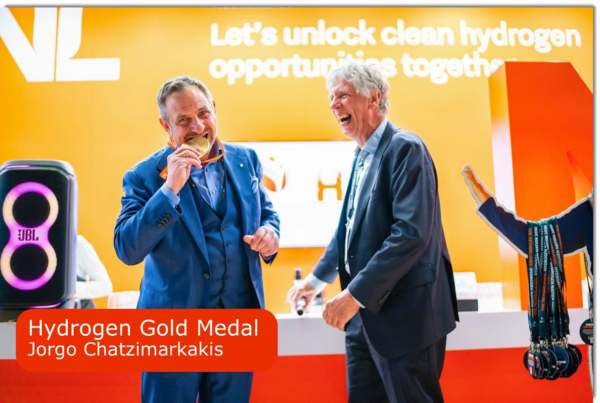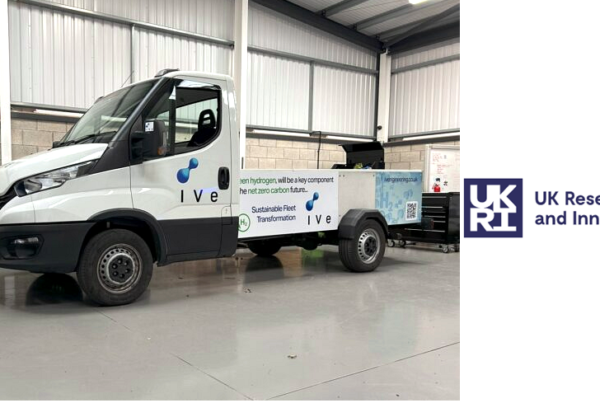
- With an investment of 32 million, it will supply vehicles and other hydrogen gas stations in the basque country
“Hydrogen is here to stay” . José Ignacio Zudaire, director of Petronor and president of the Basque Hydrogen Corridor, opened with this statement the conference held at the Chamber of Commerce on the main projects that the Basque Country is going to host around this element, one of the great alternatives to promote clean energy.
One of the axes on which this ecosystem will turn will start in Abanto Zierbena at the beginning of next year . It will be a facility to generate and store hydrogen, the heart that will feed a network that expects to move a global investment of around 1,000 million euros by 2024 , the first 200 million already in 2022.
Regarding the Abanto Zierbena technology park project, the structure absorbs 32 million euros, but it is an essential piece of the puzzle. There will be an electrolyser (the device that breaks water particles to generate hydrogen) located on the Petronor campus , very close to the technology center, connected by a hydroduct to the park, where the hydrogen will be stored.
At this same point , a hydrogen station (hydrogen gas station) will be installed, the first in the Basque Country, which will serve to supply both light and heavy vehicles, including buses, as well as other hydrogen stations that will be strategically placed in the CAV in the coming years. At least three more hydrogen stations are already planned , although their exact location has not yet been decided. The hydrogen will travel from Abanto to these points of the Basque geography in trucks.
The new technology park in the municipality of Meatzaldea will thus be a kind of Basque hydrogen hub , since it aspires to be much more than a warehouse. Trials and tests will also be carried out to improve transport and develop new uses for an element that is still expensive but that may have great potential as an alternative for decarbonisation. Above all, hydrogen is thought of as a vehicle to make clean energies, such as solar or wind, manageable, that is, storable when there is no demand to be used at a later time. But it is also looking for a gap in sectors such as transport or industry.
Yesterday, Monday, in which representatives of Irizar or Nortegas were present, other points of interest were discussed that will be deployed in the Basque Country in the short term. There will be another two electrolyzers in the vicinity of the Port of Bilbao and Petronor, which will start up in 2024 and 2025, in each case. The first is focused on the green fuel plant and the second is proposed as a way to decarbonize Petronor and other large nearby plants such as Nervacero or the ACB. The reduction of emissions in the steel industry is another of the horizons that hydrogen presents in the medium term.
In addition, Nortegas has other projects in hand to promote the use of hydrogen, one called H2Sarea, more focused on research, and another a plant to generate hydrogen in Boroa, in which other partners such as Sener participate. The idea is to take advantage of the structure of the plant itself (it will be installed next to the current plant, which works with gas) to generate 1,500 tons of hydrogen per year from clean energy. It is expected to start operating at the end of this year.
EUROPEAN FUNDS
The hydrogen ecosystem looks to the medium term, just like the great decarbonization goals set by European governments to combat global warming. ” Hydrogen is essential to reach the goal of net zero emissions by 2050,” Zudaire noted.
But investment is needed on this path, above all to reduce generation costs and, especially, storage and transport costs. Right now, green hydrogen is twice as expensive as gray hydrogen (which is generated from natural gas), although it is expected that from 2030 a price equalization may occur.
In order to tackle the process, the Basque Hydrogen Corridor, in which 58 companies participate, seeks European aid. A global investment of 1,500 million euros is planned until 2026 (just over 1,000 million until 2024), and its promoters expect that around a third of it can be covered with European Next Generation funds. The administration is also asked for clearer and more developed regulations.
“Hydrogen has sounded like an alternative in other crises, but this time it is here to stay” JOSE IGNACIO ZUDAIRE, President of the Basque Hydrogen Corridor
“We need clear regulations. Depending on how it is regulated, the cost will be one or the other” IZASKUN GOROSTIAGA, Nortegas
Read the most up to date Fuel Cell and Hydrogen Industry news at FuelCellsWorks




